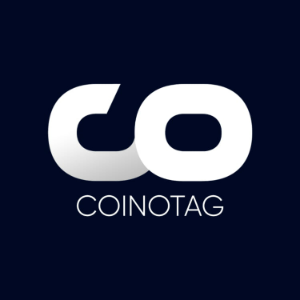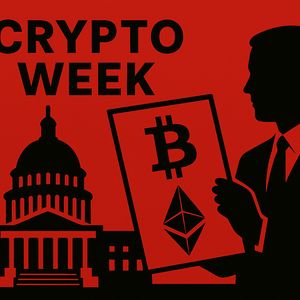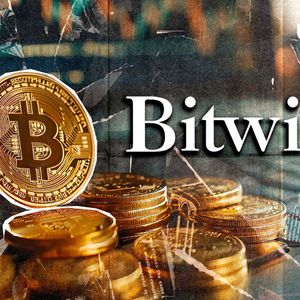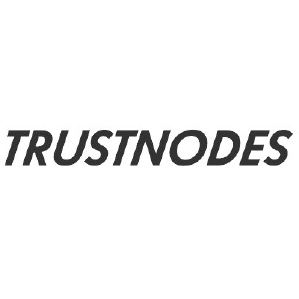What Gen-Z Thinks About Crypto
20 min read
Summary Manole Capital’s summer interns conduct surveys on 4 financial topics. We analyze Banking, Brokerage, Crypto, and Payments. This survey and research focus on the emerging Crypto space. Despite the common perception that Gen-Z “loves” crypto, our research had some surprising results. Manole Capital Management 7th Annual Gen-Z Survey: Crypto July 2024 Introduction: Manole Capital Management is a boutique asset manager based in Tampa, FL, exclusively concentrating on the emerging Fintech industry. For the last five years, Manole Capital has asked its interns to research the Gen-Z demographic. Manole Capital’s goal with this research is to better understand the Gen-Z financial services perspective. We inquire about current opinions, perspectives, and trends in four key financial services: digital currencies, brokerage, banking, and the payments industry. Past survey notes can be viewed by clicking on the link . 2024 Interns: This year, our crypto team includes 8 members from different universities and colleges. Thanks to all the efforts contributed by: Thien Truong (DePauw University), Obiora Ejiofor (York University), Laiba Fatima (McMaster University), Shaurin Chowdhury (UNC-Chapel Hill), Kritik V Kukreja (Shri Ram College of Commerce), Christian Mac Lean (Bentley University), Aditya Upadhyay (UNC-Chapel Hill), and Cole Granese (University of Florida). Generations: The Silent Generation was born before 1945 Baby Boomers were born from 1946 to 1964 Gen-X was born between 1965 and 1980 Millennials were born between 1981 and 1996 The Gen-Z cohort was born from 1997 to 2012 We need to describe the characteristics of each generation, especially focusing on Gen-Z, to better understand the differences among generations. Baby Boomers are often characterized as optimistic, idealistic, self-driven, and tend to be loyal to one company (average tenure is 15 years). Early exposure to technology necessitates daily adaption to current advancements. After years of climbing the corporate ladder, many are now interested in retirement and sharing their legacy. Gen-X tends to be somewhat sceptical, pessimistic, independent, and focused on maintaining a solid work/life balance. This group is often described as resourceful, stemming from hardships in childhood; some had two working parents, and others were raised by single or divorced parents. Millennials are successful and driven, but some have become too dependent on technology, causing their interpersonal skills to suffer. Gen-X individuals, who sometimes view parenthood as a partnership, raised Millennials with more leeway and leniency, which led to a degree of selfishness and a desire to have everything without much effort in return. Gen-Z is less concerned about brands, labels, or corporate names. They are entrepreneurial, ethnically diverse, socially tolerant, and environmentally aware. They are idealistic and focused on advancement with fairness. However, in terms of loyalty to companies, Gen-Z tends to jump between jobs frequently, with 65% quitting their job within a year of employment (2022 Lever Great Resignation). We targeted Gen-Z (those who were born after 1997) and Millennials (born between 1981 and 1996) to better understand America’s younger generations. Millennials and Gen-Z each make up over 20% of the US population. Understanding these younger generations is crucial, especially since Millennials have surpassed Baby Boomers as the largest living adult generation (according to the US Census Bureau). Often called the “Internet Generation,” this younger generation does not know life without an iPhone or social connectivity. They seek truth, value individual expression, and avoid labels. Our Research We summarized the questions we asked and the information we received below. In the survey, we got 274 respondents, out of which 76.3% were males and 23.4% were women. In terms of countries, we got 80.5% from the U.S. and 19.5% from the rest of the world. Given the diversity in sex and geography, we hope this research can provide more comprehensive insights into Gen-Z. Where possible, we have provided our conclusions, takeaways, and opinions. We intend to present Gen-Z and Millennial perspectives, even though some may be controversial. Additionally, it is fascinating to note how certain answers have changed over the last couple of years. Moreover, young people play a critical role in society, creating and shaping our future. Older generations may believe these differences are unconventional and progressive, but understanding different perspectives is critical to adapting to change. By researching the way younger generations think and act, we can provide insight into what the future may hold. We hope you find our research insightful into America’s younger generations. Before we dived into our survey, we thought it might be helpful to provide a basic working knowledge of our subject matter. We wanted to include some fundamental insights and thoughts on currency versus digital currencies, given the widely misunderstood nature of this innovative technology and asset class. What is the Deal with Crypto? Although some digital currencies have existed for over a decade, they became widely popular in 2017. Over the past couple of years, cryptocurrency (especially Bitcoin) has surged to the forefront of a larger financial debate: Is digital currency a viable currency? Both sides of this argument are equally bold, voicing both support and discreditation. Are digital currencies a legitimate form of currency? Can we use them as a medium of exchange for goods and services? Let us start with a few simple definitions, according to Webster’s Dictionary, to help set an elementary framework. What is Money, Currency, and Digital Currency? Webster defines money as “something generally accepted as a medium of exchange, a measure of value, or a means of payment” and defines currency as “circulation as a medium of exchange.” Traditionally, government agencies create, distribute, and back this currency to prevent inflation and depreciation. Lastly, digital currency is “any form of currency that only exists digitally, that usually has no central issuing or regulatory authority but instead uses a decentralized system to record transactions and manage the issuance of new units.” Cryptocurrencies substitute computational power and encryption for those traditional governmental guarantees. In addition, it creates a currency system that is decentralized and widely accessible, yet extremely unregulated and volatile. We believe that the simplest way to consider something a viable currency is if it can accomplish two distinct purposes. The first purpose of a currency is that it needs to function as a medium of exchange. Can you walk into a store or go online and transact in this currency to exchange goods and services? At this point, we do not believe that digital currencies are a viable method to exchange goods. We cannot identify many retailers or merchants that would accept our digital currencies in exchange for goods and services. While this might change over time, it does not seem to meet rule number one. The second key characteristic to be considered a viable currency is that it can act as a “store of value.” Volatility determines an important aspect of being a store of value. If an asset is highly volatile, many investors will deem it too unpredictable to be considered a store of value. For example, dating back thousands of years, gold has been a widely accepted item due to its ability to maintain its value. Question #1: Do you think that crypto is used more for illegal activity? In our research, we aimed to understand if Gen-Z perceived cryptocurrency as being used more for illegal activity. We asked this question in the 2020 survey to see if there had been any changes over the previous four years. This year, most of the Gen-Z respondents (53%) still believe that crypto is used for illegal activity. However, this is less compared to Manole Capital Management’s 2020 crypto survey, where 59% of Gen-Z respondents believed the use of cryptocurrency was for illegal activity. We could attribute the decrease in percentage to the increasing knowledge about crypto over the years. However, we expected that the percentage for “yes” would have decreased more (over the past 4 years). Manole Capital graph Given the recent collapse of FTX and the arrest of Sam Bankman-Fried, the “illegal perception” about crypto is understandable. However, instances of fraud only account for 0.34% of crypto transactions. The US government is beginning to embrace crypto, recently approving Ethereum ( ETH ) ETFs and the FIT21 bill. This bill aims to strengthen crypto market regulations, boosting investor confidence in crypto assets. The new FIT21 bill, which will create new crypto safeguards, may reassure Gen-Z members who believe crypto is dangerous. This bill should increase the number of people using crypto while creating a safer environment for those new to crypto. The US government has also lifted laws that made it difficult for banks to hold digital assets, which could open the floodgate for billions of dollars in crypto transactions. As time goes on, the negative perception of crypto will likely lessen, as government and regulatory bodies continue to adapt to financial markets. It’s time to embrace crypto as an opportunity rather than the perception that it is somehow illegal. Question #2: How knowledgeable are you on crypto? Manole Capital graph In the 2020 survey, we only evaluated the correspondent’s interest in the subject. This year, we wanted to assess the level of familiarity our survey participants had with the subject. It is noteworthy that most respondents indicate a limited understanding of crypto (51%). However, the definition of “limited” varies widely among respondents, complicating our analysis. The fact that 64% of participants perceive themselves as having little to no knowledge about crypto is interesting, considering its growing prominence in the financial landscape. We were surprised that the smallest group, only 6%, consider themselves truly knowledgeable about crypto. Clearly, there’s a lot more Gen-Z can learn on this topic. How do these results compare to our past surveys? Well…the 2020 survey indicated that 67% of the respondents had no interest in crypto. As one would expect, the fewer people interested in this topic, the less they will seek to understand. Only interest can lead to the acquisition of knowledge. As legislation gets passed and the price of certain digital currencies rise, we expect Gen-Z will begin to take notice. In our survey next year and the year after, we anticipate that 6% will significantly grow. Question #3: Do you think crypto is riskier than investing in stocks? We didn’t ask the same question in the 2020 survey; however, this question can shed light on a similar insight from that survey. We asked if Gen-Z believed that crypto was riskier than investing in stocks. Manole Capital graph In this year’s survey, 86% of respondents believe that cryptocurrencies are riskier than equities. The reasoning behind this attitude is not surprising, as cryptocurrencies are indeed far more volatile than stocks. Market sentiment, macroeconomic events, regulatory developments, and other factors contribute to this volatility. Moreover, unlike stocks that derive their fundamental worth from a company’s earnings, cryptocurrencies lack a fundamental worth. Instead, crypto derives its value from investor trust, FOMO (fear of missing out), and in some cases, “store of value”. Without a true way to evaluate the fluctuations in the price of cryptocurrencies, they naturally should have higher volatility and risk. Also, as compared to stocks, cryptocurrencies are a relatively new asset class. Dating back only to 2009, cryptocurrencies made their debut as an open-source software. Stocks, on the other hand, have more data and history. Investors have been conducting research and analysis on public companies since the 1600s. Question #4: When merchants accept, will crypto? Manole Capital graph In another part of our survey, we asked respondents about their thoughts on when cryptocurrencies would become widely accepted by retailers and merchants. 45% of respondents predicted this would happen within the next 5 to 10 years, while 27% believe that crypto will never gain acceptance. Only 4% of our survey believed that merchants would shortly begin to accept crypto at the POS (point of sale). Interestingly, 27% said “never”. In our opinion, this reasoning is sound. As the previous few questions highlight, Gen-Z does not see a clear path for cryptocurrencies to be used and seamlessly integrated into everyday life. Despite this lack of knowledge and confidence in crypto, Gen-Z is optimistic that ultimately it will be accepted by retailers – it’s just a matter of time. When comparing this to the study from 2020, opinions have changed. In 2020, the highest response group was “never,” with an overwhelming 49%. Now, most people believe that 5-10 years is the correct response. The confidence in the 5 to 10-year timeframe stems from a blend of skepticism about the current complexities of crypto; such as regulatory uncertainties and price volatility, as well as a belief that technological advancements and increasing adoption will gradually improve. In our opinion, Gen-Z views the rise of platforms like Coinbase and the growing utilization of blockchain technologies as crucial steps towards legitimizing cryptocurrencies, as a viable alternative to today’s more traditional financial system. Gen-Z views these developments as establishing the foundation for broader acceptance and additional applications in our daily lives. Question #5: Do you own crypto? If yes, which crypto(s) do you own? Manole Capital graph In our recent survey assessing crypto ownership and interest levels among Gen-Z, a clear trend emerged; a significant majority expressed no interest in owning cryptocurrencies (45%). This group of respondents cited reasons ranging from a lack of understanding about cryptocurrencies to simply not being interested in the concept. Among the remaining respondents, 55% showed some level of interest in cryptocurrencies. These findings underscore a prevailing sentiment that, while awareness of cryptocurrencies exists, widespread enthusiasm and adoption are not yet pervasive. Platforms like Coinbase are contributing to the increasing visibility and accessibility of crypto, potentially paving the way for greater adoption among Gen-Z and other tech-savvy demographics. As these platforms continue to evolve and crypto gains more mainstream recognition, it is plausible that interest and participation levels will continue to increase, especially among younger, more digitally native generations. When comparing this to the survey from 2020, the results are quite different. In 2020, those who owned crypto were about 7%, and now it is 26%, highlighting a drastic increase over the last four years. The “no and not interested” group changed significantly from 56% down to 45%, indicating interest in crypto has been increasing. Overall, while a significant portion of the population remains uninterested or uninformed about crypto, the landscape appears poised for growth. Manole Capital graph According to the survey, 77% of Gen-Z own Bitcoin, while 57% own Ethereum. Our survey found that Gen-Z also owns some other digital assets, like Shiba Inu, Decentraland, SOL, Polygon, and others. Clearly, the Big 2 cryptos to own are Bitcoin and Ethereum. We can see that many of the Gen-Z population believe that Bitcoin is a strong investment and has a brighter future compared to various other cryptos. In the 2020 survey, Bitcoin ownership was just at 31%, so it is clearly the #1 crypto for Gen-Z to own. Ethereum is still #2, and it has also materially increased, from just 20% in 2020 to 57% now. Ethereum ETFs just launched, so it should continue to grow in acceptance. Question #6: What is your preferred crypto platform? If you are a crypto owner, tracking and trading your currency can be a very challenging process. Unlike usual securities, most of these currencies require a digital wallet to keep track of transactions. This is because, as odd as it may seem, these digital wallets don’t hold any currency. Cryptocurrencies don’t physically exist anywhere. Digital wallets allow users to keep track of their currency inflows and outflows, effectively eliminating the need to store any physical currency. There’s an ever-growing number of these services, allowing users access to the ledger and the ability to trade. However, the management of many digital wallets by third-party companies presents a unique security risk. Manole Capital graph We wanted to understand what the preferred platform of Gen-Z. This year, in total, we received 17 different preferred crypto platforms. With the largest market share at 61%, the clear leader was Coinbase. Our research found that Coinbase is succeeding in the marketplace because of its user-friendly interface and strong security features. Following Coinbase, PayPal is in 2nd place, with a 16% market share. We believe this is because PayPal has successfully integrated crypto transactions into its payment platform. Some other platforms, such as Binance, Kraken, and Coinsquare, have a smaller but notable presence. This indicated a diversified interest in various platforms, suggesting that while some users prefer mainstream options, others are exploring different options for their digital coin transactions. When comparing this year’s results to the 2020 survey, we found some similarities and some differences. Coinbase was the dominant platform in 2020, and it remains so today. However, the biggest jump was PayPal, which wasn’t even one of the options 4 years ago. Now, PayPal is in 2nd place. The biggest surprise and change from 2020 was Binance. It used to have a 19% market share in Gen-Z, however now it only received 4 votes. Wow! Talk about a fall… This is most likely associated to additional and heightened security from US authorities. On October 18th, 2023, Binance US announced that they wouldn’t allow withdrawals for users and that its users could not withdraw USD without first converting it to stable coins or another digital asset. Also surprising to us was FTX still being on this list. With its founder behind bars and disgraced, we were surprised it received any votes. Question #7: What is the best attribute of crypto? Unlike the 2020 survey, this is the first time we’ve posed this question. We wanted to better understand and gain a deeper understanding of Gen-Z’s perspective and understanding of crypto. Our results found that the top four attributes of crypto were: Its decentralized nature, speed, competition with the US dollar, and anonymous transactions. Gen-Z believes that crypto’s best trait is its decentralized nature, at 40%. This refers to the blockchain and how crypto operates without intermediaries or governmental oversight. Investors value this autonomy, especially where their actions are free from unwanted scrutiny. Gen-Z views crypto’s competition with the US dollar, at 16%, as the least significant attribute, but the 2nd, 3rd, and 4th choices were all fairly similar. Unlike industries such as manufacturing, technology, and services, crypto contributes less to our nation’s GDP. Industries like energy, agriculture, manufacturing, and technology typically have a more substantial direct economic impact compared to crypto. Meanwhile, the speed factor and anonymous transactions contribute around the same amount (23% and 21%, respectively). Manole Capital graph Using blockchain technology has helped with transparent and fast transactions, but lacking government interventions and regulations can pose a security risk. For instance, in 2016, the DAO (Decentralized Autonomous Organization) made an early attempt to create a decentralized venture capital fund on the Ethereum blockchain. An exploit in its smart contract code led to the theft of approximately $60 million worth of Ether. This is just one example, and there are undoubtedly many more occurring. We were quite surprised by these results, as we would have thought that Gen-Z’s preference for convenience and privacy protection would be the best attributes of crypto. Gen-Z values these in almost every aspect of our lives (indicated through the increasing use of e-wallets or internet banking services), so we were surprised to see decentralized nature take the #1 slot. Question #8: Should the government regulate crypto? Manole Capital graph We didn’t ask this exact question in the 2020 survey, but we did have a question that provided a similar insight. We wanted to change the wording to better match today’s financial landscape. The majority of Gen-Z, at 61%, believes that the government should regulate crypto. In our opinion, there is a clear correlation among these data points. We believe that regulations will allow for a safer and more secure marketplace. This will then boost confidence and provide a broader range of investment opportunities. Crypto relies on unregulated trust, Gen-Z must believe that additional regulations will reduce the possibility of consumer harm. Crypto service providers do not have regulatory exemptions when they offer services. The crypto marketplace is a volatile system, and it is relatively harder to detect fraudulent activity and ensure accountability. The crypto marketplace is ironically referred to as the “Wild West” due to this instability, lack of regulatory supervision, and high risks. In comparison, if there is non-governmental regulation, there will be exponentially more prospects of innovation, financial sovereignty, privacy, and freedoms. Crypto users crave flexibility and privacy; if there are more governmental regulations, it would result in more monitoring and surveillance, and likely push users overseas. The Catch-22 is that innovation can be hindered by overregulation. Question #9: Do you think countries are using crypto to avoid sanctions? Manole Capital graph This is the first time we have asked this question. We asked if countries were using crypto to avoid sanctions (hinting at Russia, Iran, and North Korea). This question assumed a certain amount of knowledge about crypto to answer, which an earlier question indicated wasn’t there. The majority (52%) of respondents are unaware of the use of crypto for evading sanctions, while approximately 42% believe crypto is used to avoid sanctions. This result is not surprising, since most people don’t understand what sanctions are, or the relationship between them and crypto transactions. Let’s delve into the topic of sanctions and how crypto could be used to avoid them. Sanctions are political and economic decisions taken by countries or international organizations to penalize a specific country, organization, or individual. There are many types of sanctions, ranging from economic sanctions (restrictions on trade, investment, or financial transactions) to diplomatic sanctions (travel bans on diplomats) and a lot more. The US, UN, and European Union impose sanctions on North Korea to deter nuclear weapons development, making it a notable example of sanctions. Behind the scenes, people engage in activities like sanction evasion. Many media and news organizations do not cover these activities. However, there have been indications in the past that crypto is being used to dodge sanctions. For example, after the Russian-Ukraine war, trading volumes between the rouble and Bitcoin and the rouble and Tether skyrocketed (following Western sanctions). Furthermore, crypto transactions are exceedingly difficult to track, making it challenging to identify whether it is being used to escape sanctions or for a lawful reason. Just a few weeks ago, a new Senate bill contained a provision designed to prevent the use of crypto for supporting terrorism. This suggests a worry about the use of digital assets to evade financial controls, including sanctions. Countering this, the crypto industry is pushing back on the requirement to identify users, ensuring its ability to remain anonymous. Staying topical, the Russian government just passed a bill (on Tuesday, July 30th) that allows businesses to use digital currencies in international trade. This is a larger component of how governments are skirting Western sanctions with crypto. Question #10: Do you think cryptocurrencies contribute to creating economic value? The money that most people use around the world today has no intrinsic value. Indeed, the money in your hand is worthless! People use fiat money, a government-issued currency, that lacks a commodity backing (like gold). It is not incorrect to assert that the value of the money in your possession simply stems from people’s perception of its worth. Without the supply and demand of fiat money, and the backing of individual governments, currency is no different than crypto. Smart contract platforms such as Ethereum, Solana, and Near generate fee revenue from the economic activity on their networks. Network fee revenue is the total amount of fees paid by users to use the network. It is a critical indicator of the value that these platforms generate. Importantly, there is a close relationship between the network fee revenue and the market cap. This means that as more users engage with these networks and create fees, the market capitalization of the corresponding cryptocurrencies tends to increase. Manole Capital graph This is the first time we asked this question. We wanted to know if crypto was creating economic value. Our goal was to understand if Gen-Z perceived crypto as valuable to our economy. Gen-Z knowledge of crypto has not improved, so it wasn’t likely to believe it continues to our economy. According to the results, around 83% voted that the importance of crypto on the economy should be equal to or lower than 3. Only a quarter of Gen-Z believe that crypto is creating value. We weren’t terribly surprised by this answer, as most Gen-Z view crypto like gambling. In addition, many believe crypto has no intrinsic value, so wouldn’t view it as a terrible additive. It doesn’t help that the media frequently portrays crypto as a fraud, which intensifies this perception. Lastly, Gen-Z gets information from social media, which sometimes lacks critical thinking skills. All of this demonstrates that network activity has a direct financial impact and generates value. Crypto can act as a better alternative to money because of faster transactions, complete decentralization, lower transaction costs, transparency, and so on. The rapid growth in the number of users and the size of the market has demonstrated the advantages of using crypto over an extended period. Conclusion: Manole Capital defines Fintech as ” anything utilizing technology to improve an established process. ” It also states that the crypto industry is the most thriving FINTECH industry in the world, as crypto coins such as Bitcoin are at all-time highs and stakeholders accept them as a form of payment. The cryptocurrency sector is fast changing and experiencing substantial developments. Some of our major Gen-Z findings are: crypto is still perceived to be used for illegal operations. there remains a lack of understanding and knowledge. crypto remains a risky asset class, much riskier than stocks. merchants are unlikely to accept crypto at the POS (point of sale). Bitcoin and Ethereum are still the most prominent digital currencies. Coinbase remains the dominant digital currency platform. decentralization is the most significant aspect and trait of crypto. a desire for increased government regulation. In our opinion: We feel that crypto is a valuable and growing asset class, but it is also far more volatile and riskier than other asset classes. Attributes such as decentralization and anonymous transactions appeal to Gen-Z, but it wants additional government regulations. Garry Kasparov, the world’s greatest chess player, famously stated, “If you don’t take risks, you’ll never be able to create something truly worthwhile.” This is also true for crypto, if individuals avoid using it due to risk of losing their money. However, they also run the risk of missing out on one of the most innovative and unique asset classes. We hope that our survey and research will provide you with greater insight into Gen-Z’s perspectives, trends, and thoughts on crypto. Thank you for your interest in our Gen-Z cryptocurrency note. We’d love to hear from you and receive your feedback on our research, regardless of whether you agree or disagree with any of the findings. Have a wonderful summer. The Manole Capital 2024 Crypto Team Disclaimer: Firm : Manole Capital Management LLC is a registered investment adviser. The firm is defined to include all accounts managed by Manole Capital Management LLC. In general: This disclaimer applies to this document and the verbal or written comments of any person representing it. The information presented is available for client or potential client use only. This summary, which has been furnished on a confidential basis to the recipient, does not constitute an offer of any securities or investment advisory services, which may be made only by means of a private placement memorandum or similar materials which contain a description of material terms and risks. This summary is intended exclusively for the use of the person it has been delivered to by Warren Fisher and it is not to be reproduced or redistributed to any other person without the prior consent of Warren Fisher. Past Performance: Past performance generally is not, and should not be construed as, an indication of future results. The information provided should not be relied upon as the basis for making any investment decisions or for selecting The Firm. Past portfolio characteristics are not necessarily indicative of future portfolio characteristics and can be changed. Past strategy allocations are not necessarily indicative of future allocations. Strategy allocations are based on the capital used for the strategy mentioned. This document may contain forward-looking statements and projections that are based on current beliefs and assumptions and on information currently available. Risk of Loss: An investment involves a high degree of risk, including the possibility of a total loss thereof. Any investment or strategy managed by The Firm is speculative in nature and there can be no assurance that the investment objective(s) will be achieved. Investors must be prepared to bear the risk of a total loss of their investment. Distribution: Manole Capital expressly prohibits any reproduction, in hard copy, electronic or any other form, or any re-distribution of this presentation to any third party without the prior written consent of Manole. This presentation is not intended for distribution to, or use by, any person or entity in any jurisdiction or country where such distribution or use is contrary to local law or regulation. Additional information: Prospective investors are urged to carefully read the applicable memorandums in its entirety. All information is believed to be reasonable, but involve risks, uncertainties and assumptions and prospective investors may not put undue reliance on any of these statements. Information provided herein is presented as of the date in the header (unless otherwise noted) and is derived from sources Warren Fisher considers reliable, but it cannot guarantee its complete accuracy. Any information may be changed or updated without notice to the recipient. Tax, legal or accounting advice: This presentation is not intended to provide, and should not be relied upon for, accounting, legal or tax advice or investment recommendations. Any statements of the US federal tax consequences contained in this presentation were not intended to be used and cannot be used to avoid penalties under the US Internal Revenue Code or to promote, market or recommend to another party any tax related matters addressed herein.

Source: Seeking Alpha






